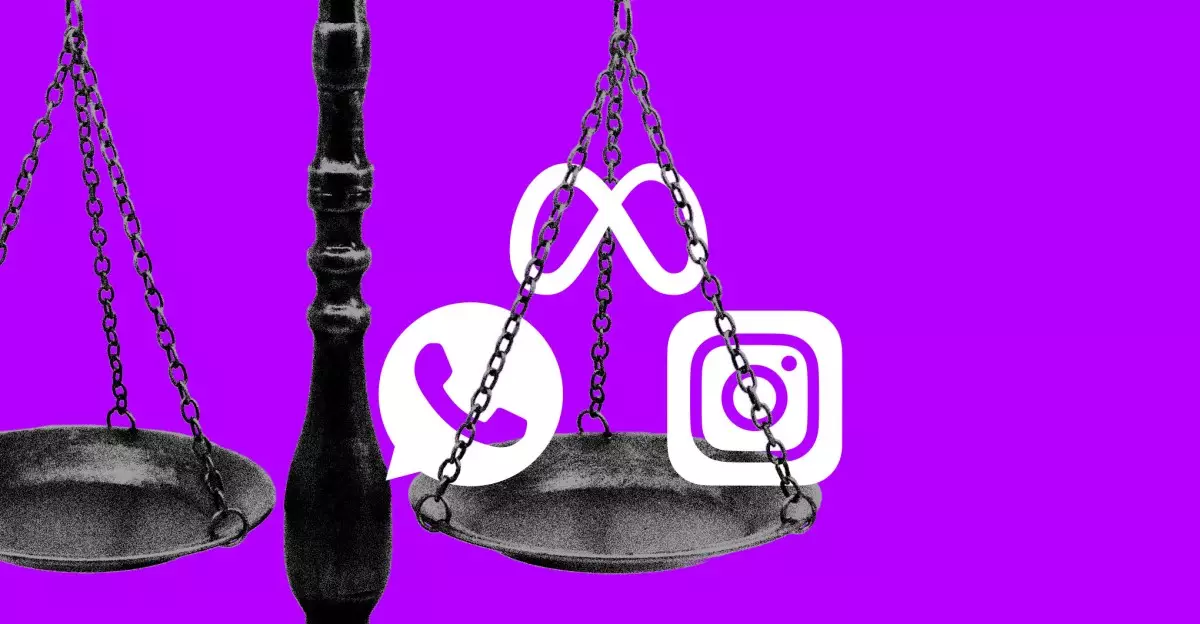The recent FTC v. Meta trial is not merely a legal skirmish; it’s a high-stakes drama that encapsulates the very essence of contemporary business ethics, competitive strategy, and the future of digital communications. At the center of this narrative is Mark Zuckerberg, the enigmatic CEO of Meta Platforms, who took the stand not just to defend his company but to articulate a vision of social media’s future that challenges prevailing assumptions about competition and innovation.
Zuckerberg’s testimony, which stretched across 13 hours and three days of rigorous questioning, pivots around the government’s assertion that his acquisitions of WhatsApp and Instagram were not just business moves but a strategic maneuver to stifle competition. During this intense examination, he was notably unflappable, even smiling when asked about the hefty $19 billion price tag on WhatsApp—a purchase that he staunchly defended, declaring, “I’d do it again.” This self-assured statement encapsulates the belief that these acquisitions were instrumental in shaping the future of communication rather than an act of monopolistic suppression.
Confronting the Government’s Claims
The FTC’s argument hinges on the notion that Zuckerberg’s motives were entangled with fears of competition, particularly from emerging messaging apps. However, Zuckerberg articulated a counter-narrative, claiming that he saw WhatsApp not as a threat, but as an asset that significantly altered user engagement by shifting from public to private communication. Specifically, he noted that the founders of WhatsApp, Jan Koum and Brian Acton, harbored disdain for advertising, which led him to believe that their platform capped its potential to evolve into a competing entity against Facebook. It’s a compelling defense that shifts the focus from obstruction to adaptation.
In considering Zuckerberg’s statements, one can’t ignore the irony in the juxtaposition of his intentions and the FTC’s interpretation of them. The assertion that he bought these apps to eliminate competition oversimplifies a complex scenario where the digital landscape was, and continues to be, fluid and ever-evolving. For Zuckerberg, investing in WhatsApp and Instagram was about leveraging pivotal shifts in how users communicate and engage online, not merely squishing budding competition.
WhatsApp and Instagram: A Successful Integration Narrative
The courtroom exposed Zuckerberg’s internal thought processes that led to the acquisitions, revealing that WhatsApp was not just a potential competitor but a vital component in addressing a burgeoning trend: the privatization of conversations. He strategically positioned WhatsApp within Meta’s ecosystem as a tool for navigating the increasingly competitive and politically charged digital environment. This is particularly telling in a world increasingly dominated by concerns over privacy and user autonomy—a narrative that contradicts the idea that these platforms were merely absorbed to eliminate competition.
Zuckerberg’s recollections shed light on his perception of Instagram’s potential, asserting that, at the time of its purchase, he did not regard it as a significant threat to Facebook. Instead, he initially sought to nurture it as a separate entity. It was only when the app began accumulating users at an unprecedented rate—reaching a billion users—that his perspective shifted. This lends a nuanced view to Meta’s strategic approach: rather than viewing Instagram as a competitor, he recognized the value it could bring to the wider ecosystem and how it could ultimately strengthen Facebook’s position on the global stage.
Strategizing Against Tech Giants
Zuckerberg’s insights also extended to Meta’s precarious relationships with giants like Apple and Google, which he framed as persistent sources of anxiety. He candidly stated that acquiring WhatsApp was partly about reinforcing Meta’s bargaining power against the app store policies dictated by these tech titans. This commentary adds an interesting dimension to the antitrust conversations surrounding Meta, suggesting that acquisition strategies often serve dual purposes—both as a means of mitigating competition and as a form of business resilience against more powerful stakeholders.
The acquisitions have, in hindsight, proven to be incredibly fruitful, surpassing Zuckerberg’s own expectations. WhatsApp’s user base has burgeoned close to 3 billion, and Meta has strategically monetized these platforms, generating significant revenue while enhancing engagement across its services. This financial testimony further complicates the FTC’s narrative, suggesting that despite investing substantial sums, Zuckerberg’s efforts were ultimately geared towards enhancing user experience and platform innovation rather than suppressing potential threats.
Investments vs. Eliminations: The Divergence of Perspectives
When reflecting on the testimony overall, it becomes apparent that there’s a wider conversation about the nature of acquisitions in the tech industry. Are large sums spent on innovative platforms indicative of a monopolistic mindset, or are they necessary investments to adapt to quickly changing digital landscapes? Zuckerberg’s perspective of investing in innovation rather than annihilating competition might resonate with many entrepreneurs and executives who grapple with similar decisions in an industry that demands adaptability.
As the trial continues, it invites further examination not just into Meta’s practices, but into the ethical responsibilities of tech giants when navigating competition and innovation. The lens through which we view these acquisitions will undoubtedly shape the future discourse around antitrust actions and the definition of fair competition in an increasingly digital world.

